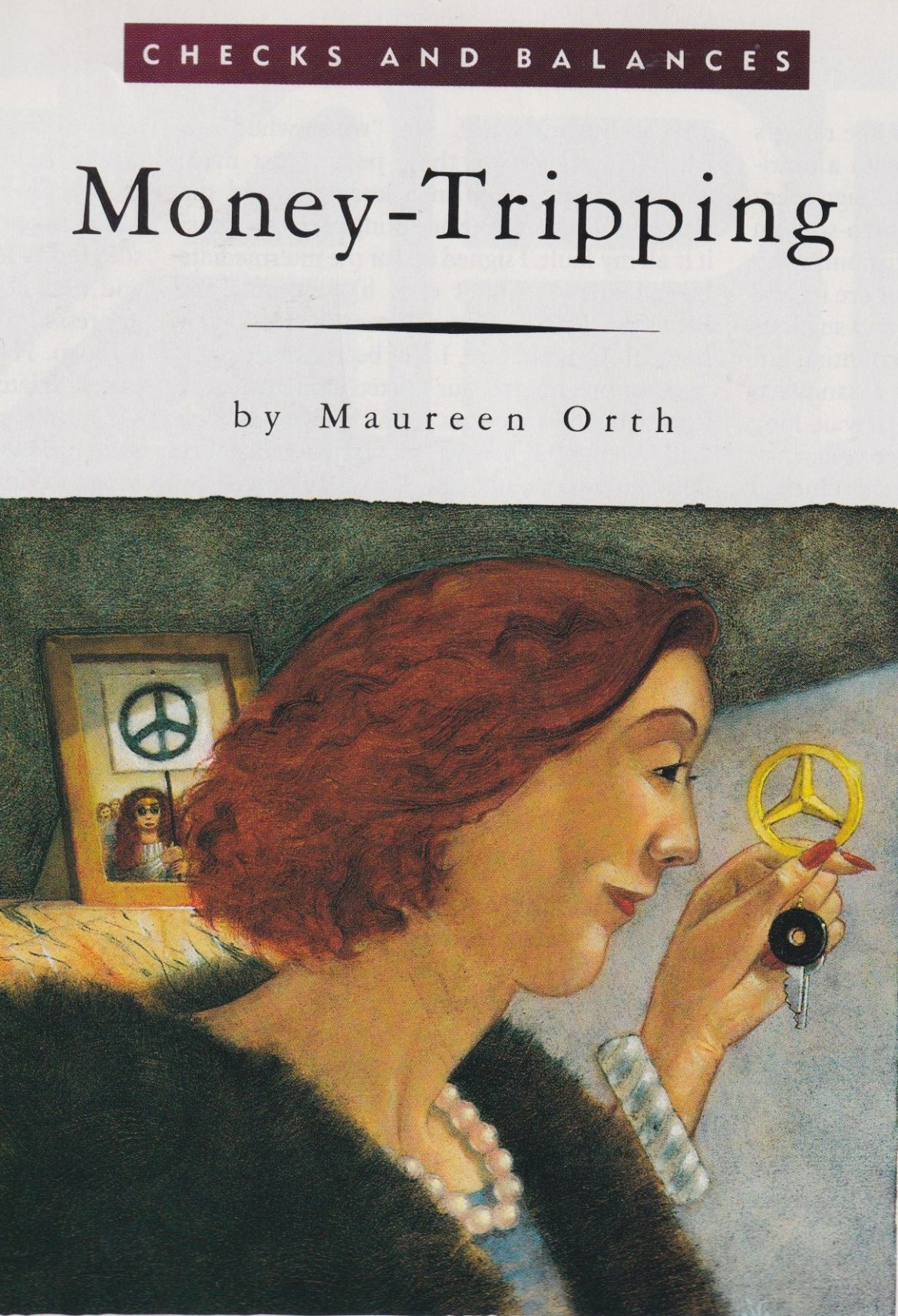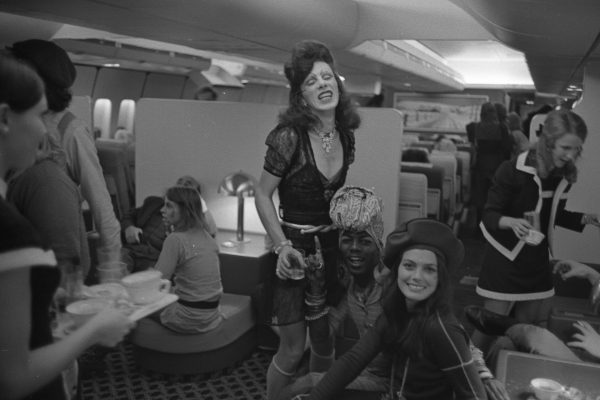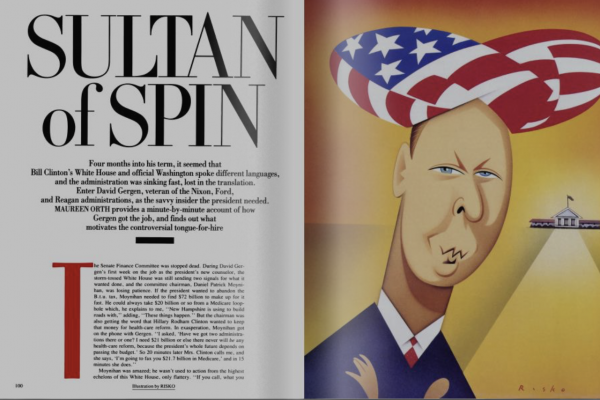Original Publication: New York Woman – June, 1989.
This is a personal question, but how does it feel to be old enough and smart enough to have gotten all the things you never wanted? Back when you could sit on your hair and had a wardrobe that today only a Dead Head would adore, did you ever dream you’d end up with all these c’s – the co-op, the country house, the car, the clothes, the cappuccino machine – not to mention the hundred-dollar haircuts and the disgusting decorator who’s telling you that $65 is a bargain for a roll of wallpaper. Oh sure, you’ve earned it, and you do have responsibilities now: to your family, your partners, your employees, your parents – they probably expect you to take care of them, don’t they?
But when does it hit you? When you glance at the $300 lunch tab and flash back to the time when it was a month’s rent? Or when you wake up in Paris and realize that the cost of two nights at the Ritz is what you traveled on for five months on your first trip to Europe? Funny, isn’t it, how you still love to listen to Janis Joplin (“Oh Lord, won’t you buy me a Mercedes-Benz”), and you’re in the Mercedes? And how sorry you feel for these eager little beavers graduating from college these days, so deprived of peak experiences like the Peace Corps or hitchhiking across Africa or mounting the barricades to change history to herstory. What’s their idea of intensity, anyhow, getting a gold card? Hey, who are you to talk? You were there for Earth Day, and look at the ozone layer now.
But you have kept your standards, right? Like you want to throw up every time those maudlin Dow Chemical commercials come on the tube – “Ooooh, Grandpa, I’m working on saving the farm for you . . .” Just a decade or so, Grandpa, after Dow’s napalm maimed thousands in Vietnam. And you know you’ll never shake hands with Henry Kissinger, should you ever meet him. Somehow it wouldn’t be right after all those names you called him in college. You’ll just now politely, and that will be that. (You might bend the rule for Tricky Dick, though, because he’s so truly bizarro he might be a hoot.)
Ah, but who are you kidding? You love it, and so does most everyone else you know, even the ones who aren’t rich but are successful and satisfied in terms of the lives they lead. Isn’t it really great to be able to pick and choose among vintage cabernets? Or olive oils, for that matter? And if you’re in the media – like many of the people I know – to be in the know before Liz, Page Six or Suzy? And how about shoes?
So what if you tell the clerk at Maud Frizon to just wrap them in tissue without the box and you’ll stuff them in the bottom of your Fendi tote so your husband won’t accuse you of being Imelda’s personal shopper? How does it feel to buy shoes that cost more than the weekly wage you pay your housekeeper? Sure, you respond to worthy causes sometimes, but, hey, it’s a tight squeeze when you think of private-school tuition and renovating the country-house kitchen at the same time.
The children? Gimme a break. This lifestyle is not really for you; it’s for the security of your children. But think of all the screwed-up rich kids you’ve run across. Why would you do that to your own kids? Why shouldn’t they have to try to make it just like you did? Well, that’s true, of course. But they’re not like us, are they? They won’t grow up thinking of themselves as so damn special.
The last time I checked, my generation was supposed to be finally grown-up and rolling gracefully into middle age. But I’m not so sure. I keep wondering if it isn’t a measure of our die-hard immaturity that we still can’t get off it, can’t stop thinking we can have whatever we want – and, by the way, we’re going to change the world too. Someday. Believe me, we’re reminded all the time. It doesn’t help to keep seeing that clip of the Beatles on The Ed Sullivan Show.
Watching that particular beginning of the Sixties – usually wedged between a couple of boring sound bites – is such a downer, like being forced to witness the trashification of Geraldo Rivera. Besides, that clip seems so mundane compared with the exhilarating feelings the lads from Liverpool subsequently inspired – the goofy self-confidence that marked the beginning of the “up yours, Americka” decade. Yeah, yeah, yeah. Still, why can’t we just come clean with ourselves and say we blew it? Not only did we not change the world, we let the Eighties happen, and now we’re up to our necks in materialism.
We can’t say it because so few Sixties-ites, including myself, are willing to believe that. How could it be quite so simple? You see, my capacity for moral outrage has stayed intact; it’s just that my appetite for material possessions has expanded. Good. Now that I’ve stated it so baldly I feel better. If there is one thing that marks me and a lot of my friends, it’s the time and energy we spend in silent rationalization, in secret self-justification – those interminable internal dialogues about how we save and what we spend. Really. It reminds me of old-line WASPs horrified of ostentatious display.
So rather than say, “I’ve got enough money for a BMW, and, by God, I’m going to buy one,” which is what a thoroughbred yuppie would do, old-line Sixties people just whine. “This isn’t really a BMW I’m driving, is it? I just need a German car because I’m on the road so much (usually on the weekends to the country), and since I do spend long stretches in the car, I really should have a phone in it.” Or, “Well, of course the children go to private schools – are you crazy? – but it’s not because of the status of it,” etc., etc.
Just show me a Sixties woman who is willing to admit publicly that she was dying to own a mink coat so she went out and got one. No way. There is always a story: “This jerk in a BMW ran over me, and, can you imagine, I got this coat as a settlement. It truly is the warmest thing I’ve ever owned.”
Every time I decide I have to have something like a new lamp because I saw one that goes perfectly with my pillow fabric (pillow fabrics and matching lamps?), I can’t just buy it. I have to spin through my Rolodex of former life experiences to think about times gone by when I existed on so much less. One of my favorite chestnuts concerns the 1972 political conventions in Miami, when thirty of us lived communally in a rented house and made two hour-long television documentaries that are now in the collections of several broadcasting museums. We scooped the networks and embarrassed both Republicans and Democrats. All on a total budget of $30,000. Thirty of us, for thirty grand, including peanut butter sandwiches.
Not only that, our tireless “guerrilla video” group was led by the guy who went on to produce The Big Chill,Michael Shamberg, the same major Hollywood producer who just struck it rich with A Fish Called Wanda.Michael has always been extremely smart about the yearning of our generation, so the other day I decided to call my old friend to find out if being rich and famous had made him happy. He called back from the ski slopes in Park City, Utah. “Enjoying our newfound affluence,” he said. His wife, another member of our original group, Academy Award-nominated documentary filmmaker Megan Williams, who has also founded an outstanding school for the deaf in L.A., was with him. They were staying in Park City because she wouldn’t let him go to Deer Valley, the glitzier resort nearby. “Megan thought that would be too plush,” he said: Exactly.
OK. So now that you’re in the chips, Michael, what’s the diff? More cackles. “We just like to live comfortably. My wife doesn’t own any jewels or anything.” Megan called out in the background, “Tell her Megan says she used to think twice before spending fifty dollars; now she thinks twice before spending a hundred. That’s purity.” Then Michael added, “A business manager out here once told me it usually takes two years for your lifestyle to catch up with your income.”
But do your feelings ever catch up? If you’re hard-core Sixties, never.
“It’s a big guilt trip, why we’re so lucky,” says my good friend Jurate Kazickas, who was the first woman reporter in Vietnam and now, along with Lynn Sherr, the ABC-TV correspondent, publishes The Liberated Women’s Appointment Calendar. Jurate is married to a hit-the-jackpot investment banker, and they and their two young children live an extremely comfortable life on the Upper East Side. “When we first moved in, we said, ‘We don’t deserve this bedroom, it’s too good for us,’” says Jurate. She now writes checks for every good-cause junk-mail solicitation she receives, in addition to her more serious charity work. Still, she often worries: “It’s made us very conscious of the have-nots. Our responsibility is to give it back.”
Alas, giving back so far has just not been the same. “Before, we were on the barricades,” says Jurate. “Then you grow up, and you realize you write the checks. It’s more effective: you can buy a couple of pages in the Times, and it will educate those who are not aware. Still, I prefer the old days, that activism when you could give a whole summer to a cause. Now you’re chairing some dinner in a hotel ballroom. It just doesn’t feel as good.”
Amen. It also doesn’t feel so good to have lived long enough to know how hard it is for the system to bend, to humanize itself. Especially in uncivilized, out-of-control New York these days. But deep down, that doesn’t dampen our reneged spirit. Not at all. Somehow all unbowed children of the Sixties remain eternally hopeful or perhaps secretly smug. We know that the Reagan years, the deficit, Third World debt, the crack epidemic, the disappearance of species, the Greenhouse Effect, adult illiteracy, AIDS and multiple effects of a permanent underclass can be dealt with summarily. And we’re willing to give as much as 1 to 2 percent of our pension plans if the right candidate appears. We still dream about him or her all the time – someone who’ll let us cause trouble and have some fun again with our brains instead of our bank accounts.
Now listen, do you think $179 is too much for a bathing suit? I really like to swim, and . . .
This article is typed from the original material. Please excuse any errors that have escaped final proofreading.



